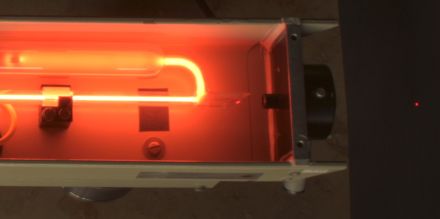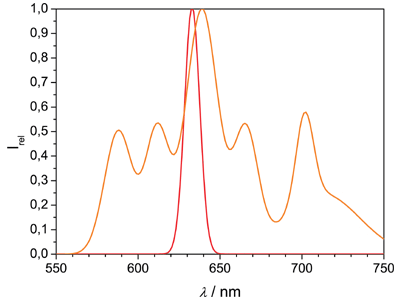2. Laser
Comparison between the light of a gas discharge and laser light
In the previous pages we came to realise that laser light is coherent. How did we come to this conclusion? What fundamental difference lies in the light of lasers and other light sources?
Let us take another look at the HeNe laser. In the laser's housing, light is produced by means of a gas discharge within the glass tube. Atoms are excited by freely moving electrons, and the excitation energy is then emitted in the form of light. Can we now consider this light produced in the glass tube as laser light, which then only needs “focusing” when it exits the laser device?
If you take a closer look at the picture below, you will observe that the laser light (tiny red spot on the right) appears to have a different colour - a deeper red - than the light in the glass tube.

This observation can be validated by measuring the spectra. The light intensities are normalised to unity, as in the comparison between halogen light and laser light shown before:

The light produced by the gas discharge lamp is not monochromatic. Surprisingly engough, the wavelength of the laser light does not even coincide with one of the peaks (maxima) in the spectrum of the gas discharge!
